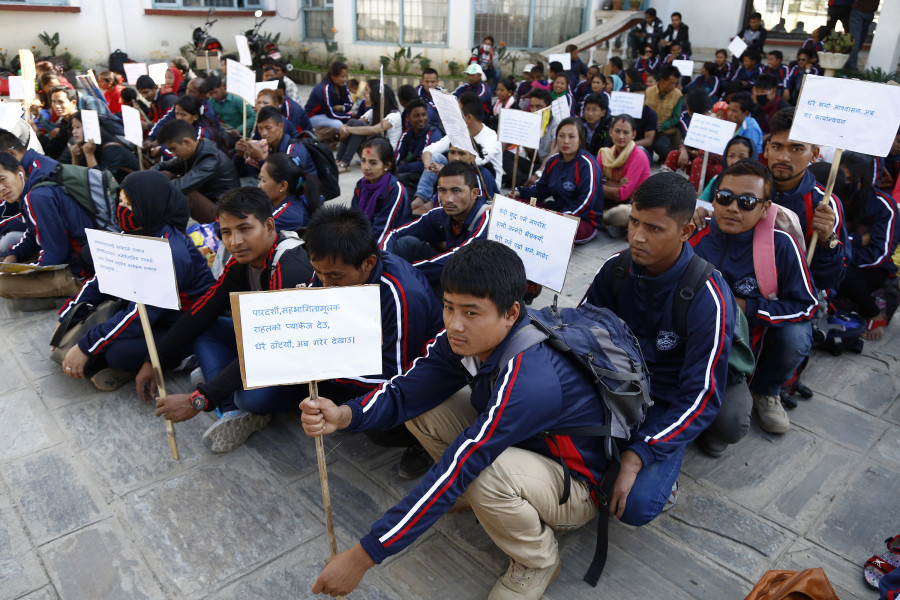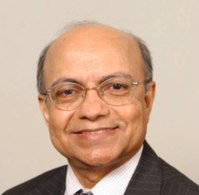Columns
Maoist betrayal and reparations
Channelling support to ex-child soldiers through the Maoists would be like asking the fox to guard the chicken coop.
Kul Chandra Gautam
The recent decision by the Pushpa Kamal Dahal-led government to declare thousands of victims of the Maoist insurgency as “martyrs” and to award a generous financial allowance to former child soldiers illegally deployed by the Maoists in their “People’s War” has triggered much indignation and controversy. Dahal took these important decisions, potentially incurring huge expenses from the national treasury, taking advantage of an interim period with an incomplete cabinet comprising his hand-picked ministers from his own party that commands less than 12 percent of the members in Parliament.
There are many examples of how the Maoists mastered the art of fleecing huge amounts from the national budget. Maoist leaders fleeced billions of rupees in the name of their combatants in cantonments during six years of the peace process from 2006 to 2011. My book, Lost in Transition: Rebuilding Nepal from the Maoist Mayhem and Mega Earthquake, contains a catalogue of how the Maoists deliberately prolonged and used the peace process as a cash cow for their party coffers and to enrich several Maoist leaders without any accountability.
It is true that other political parties and their leaders are also complicit in widespread corrupt practices. But the hypocrisy of the Maoists is particularly staggering because they justified their “People’s War” as a crusade against corruption and to establish genuine “people’s democracy”.
‘Bourgeois education’
Among the most unforgivable actions of the Maoists was misleading thousands of children and youth with false promises that ruined their lives. They enticed these gullible youngsters to drop out of school, saying that the prevailing “bourgeois education” was useless, and that it was more urgent and important to overthrow the feudal regime and establish a new “people’s democracy” that would dramatically change their future. Such slogans were used to lure even primary school students to drop out and join the Maoist militia or “cultural troupes”. Meanwhile, the Maoist leaders found many creative ways to give their own children quality “bourgeois education” and access to good civilian jobs and business opportunities.
At the height of the insurgency, in many areas under their influence, the Maoists enforced a policy of “one family, one volunteer for the Maoist cause”, demanding that each family should allow them to recruit one family member—often an adolescent—to join their armed militia. Their preferred recruits were mostly vulnerable adolescents, particularly from the poor and historically marginalised and oppressed communities.
I was a senior UN/UNICEF official during the decade of the Maoist insurgency (1996-2006). Along with the UN Secretary-General’s Special Representative on Children and Armed Conflict, UNICEF was particularly concerned with the plight of child soldiers deployed by some governments and non-state actors in conflict situations worldwide. Both as a UNICEF official and as a Nepali, I naturally took an extra interest in reports of the recruitment of child soldiers by the Maoists in contravention of several UN conventions and international treaties ratified by Nepal.
In my efforts to informally help the UN Secretary-General’s “good offices” for the peace process in Nepal, I had established discreet contacts with several key Maoist leaders, including Baburam Bhattarai, Narayan Kaji Shrestha, Krishna Bahadur Mahara and Dinanath Sharma. In my discussions with them, a topic that I always raised was their use of child soldiers.
At a meeting with the Maoist chief ideologue Baburam Bhattarai at the residence of prominent Nepali civil society leader Devendra Raj Pandey, I sought his clarification on the Maoists’ recruitment of child soldiers. Bhattarai denied such “allegations” and assured me that their party fully abided by the Convention on the Rights of the Child (CRC) and other international treaties, and it was against their party policy to recruit children as combatants.
Despite such denials, many national and international NGOs found irrefutable evidence of children being recruited into the Maoist militia and their “People’s Liberation Army”. For over 10 years, the Maoists were listed by the UN as a non-state actor using children in armed conflict. This was proven beyond any doubt by the United Nations Mission to Nepal (UNMIN).
Ineligible versus ‘ayogya’
UNMIN verified over 3,000 combatants recruited into the Maoist PLA when they were under 18. As per the Comprehensive Peace Accord (CPA) and the Agreement on the Monitoring of the Management of Arms and Armies (AMMAA), these youngsters were considered “ineligible” to be certified as combatants for possible integration into the security forces.
A short-hand Nepali translation of the word ineligible is ayogya that can also be interpreted as “incompetent”. Maoist leaders deliberately incited the ex-child soldiers to protest against this negative-sounding designation, insinuating that the arrogant and insensitive UNMIN officials insulted these proud and patriotic youngsters as incompetent or ayogya.
According to the terms of the CPA and AMMAA, all ex-child soldiers should have been discharged from cantonments promptly after their verification. But the Maoist leaders delayed their release and rehabilitation for several years, making all kinds of unreasonable demands with the government and donors, supposedly on their behalf. Meanwhile, the party leadership continued to give them false assurance that “somehow” it would either ensure their integration into the Nepal Army or secure very generous cash allowances for them.
Knowing that the international community was full of goodwill and was prepared to invest generously for the rehabilitation of ex-child soldiers, the Maoists tried to negotiate a package that would have secured them either a big lump sum in cash or to bankroll them in some organised skill training and income-generating activities under their party’s continuing control and influence. But such arrangements were simply unacceptable under the UN’s guiding principles for the rehabilitation of child soldiers.
Having failed to secure any such bounty for them, the Maoist party abandoned these poor ex-child soldiers when it became clear that they were no longer useful as bargaining chips with the international community. After wasting four more years of their precious life, it was a bitter-sweet sight to see these “disqualified” combatants leaving the cantonments with only Rs22,000 in their pockets, many clutching small babies in their arms.
Had the Maoist leaders not misled them, most of these ex-child soldiers could have left more happily with a very generous rehabilitation package that the UN country team had prepared for them. This package, for which UNICEF and other agencies had secured promises of around $70 million from various donors, would have included scholarships for basic education, vocational training as community medical assistants, laboratory technicians and other income-generating skills, and funding for essential toolkits, access to micro credit, career counselling and support for starting small enterprises or finding jobs, including foreign employment.
Regrettably, the Maoist leaders did not allow the ex-child soldiers to interact freely with UN staff to better understand what the rehabilitation “package” contained and how it could be further improved. For instance, I knew that if UNICEF were allowed to interact directly with the female ex-child soldiers who were pregnant or lactating at the time of their release, it would be ready to design and deliver a special package suitable for their needs.
Instead of encouraging their ex-combatants to access the rehabilitation package prepared by the UN, and negotiating to make it better, the Maoists denounced and belittled it as insulting, dishonourable and unacceptable. Most Nepali youngsters outside the cantonments would have felt lucky if they had access to such benefits.
With the passage of time, the ex-child soldiers are now adults and most have their own children and families. While some have become successful entrepreneurs and professionals, most feel traumatised, stigmatised and neglected by the former party that stole their childhood and left them to fend for themselves. Like other victims of conflict, they have suffered great injustice and deserve some help.
But given the history of deceit and betrayal by the Maoist party, channelling any support to ex-child soldiers through any Maoist-led ministry or party-affiliated organisation would be like asking the fox to guard the chicken coop. Like the broader transitional justice process, any arrangement for reparations should be carefully designed in consultation with genuine victims and administered in a transparent manner with adequate safeguards against further abuse by the perpetrators of the original sin.




 13.12°C Kathmandu
13.12°C Kathmandu















